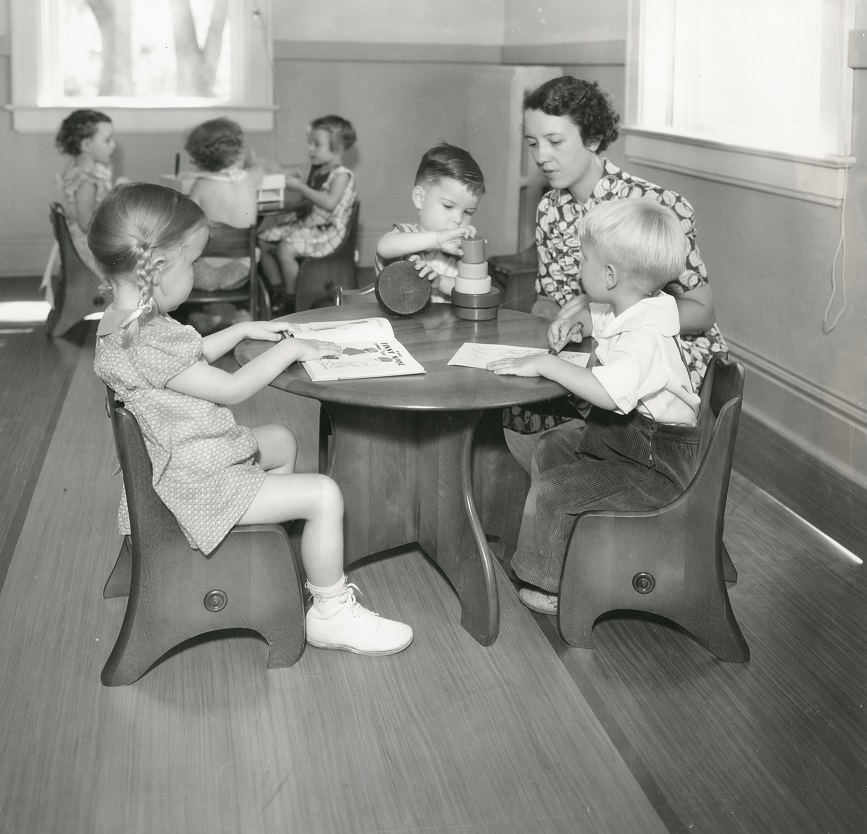
The history of the Department of Human Development and Family Studies has always been ingrained in Colorado State University’s Land Grant mission. Our department’s three-part mission of research, education/training, and outreach/extension has come alive throughout the years.
We weren’t always the Department of Human Development and Family Studies. We were once rooted in the study of Home Economics. Before the establishment of the Morrill Act in 1862, which led to the establishment of land-grant colleges, higher-education focused on teaching the classics and preparing men for white-collar professions.
The Morrill Act mandated a more extensive mission for the institutions it funded, which had a significant emphasis on agriculture.
In the 20th century, women were included in the land-grant mission through domestic science or home economics programs, because efficient farms and homes needed women who had scientific training to manage the household. During that time, their role included cooking and nutrition, household management, sewing, care of the sick, and raising children. Early programs at CSU were science-based, incorporating the chemistry of cooking, home hygiene, nursing and germ theory, among other subjects.
The field has vastly grown since its implementation. Many degrees have formed from what was once known as Domestic Economy at CSU. One of these fields is now known as Human Development and Family Studies.
Here are a few pivotal moments in the history of human development and family studies at CSU.
1894 – The program in Domestic Economy was launched at Colorado Agricultural College and later changed to Domestic Science and then Home Economics.
1929 – CSU’s preschool program, now known as the Early Childhood Center, opened at the site where the Rainbow Restaurant now sits on Laurel Street. At that time it was a summer-only program.
1936 – The Preschool Laboratory (Early Childhood Center) was established on a year-round basis and housed just west of Ammons Hall in the former Veterinary Hospital Annex.
1950 – The School of Home Economics offers several major courses of study, including in Child Development.
1970 – The Department of Child Development and Family Relationships was established. Until 1970 this Department was an informal unit within the College of Home Economics.
1972 – The Early Childhood Center moved to Rockwell Hall.
1976 – The Early Childhood Center and the Department of Child Development and Family Relationships moved into the new Elizabeth Dyer Gifford Building, named in honor of Dean Gifford, who served for 25 years.
1974 – Master of Science – Child Development and Family Relationships degree was instituted to strengthen the research base for graduate work.
1978 – The Department of Child Development and Family Relationships changes its name to the Department of Human Development and Family Studies to more appropriately identify its mission.
1986 – Merger of the College of Professional Studies and the College of Human Resource Sciences, formerly known as Home Economics, to create the College of Applied Human Sciences. This merger was not embraced by the faculty at the time, but it did result in more cross-disciplinary collaboration as time went on.
1986 – The Center for Family and Couple Therapy opened alongside the beginning of the Marriage and Family Therapy program when the department had an interest in having a Marriage and Family Therapy graduate program and wanted to work towards accreditation by the American Association of Marriage and Family Therapy. Accreditation requires that students get 500 clinical hours of work. Most accredited Marriage and Family Therapy programs have some kind of therapy center for student to work in to gain the 500 hours. Thus, the Center for Family and Couple Therapy opened to give students the opportunity to gain their hours. During this time there was a national movement for more MFT programs.
1990 – The Center for Family and Couple Therapy was accredited by the American Association of Marriage and Family Therapy.
2009 – Campus Connections mentoring program was developed in 2009 in response to a community request for additional services for youth experiencing difficulties.
2010 – Human Development and Family Studies moved from the Gifford Building to the Behavioral Sciences Building, which provided more office and lab space as well as improved classrooms.
2012 – Early Childhood Center expanded its services to include infants and toddlers.
2013 – Early Childhood Center moved its operations from the Gifford Building to its current location at 223 South Shields in the historic Washington School Building.
2013 – College of Applied Human Sciences renamed to College of Health and Human Sciences.
2005 – Around 2005, HDFS became more research-oriented, although teaching and engagement have remained priorities. We now have a great deal more grant-funded research activity, much involvement in the recently created Prevention Research Center, and quite a few faculty who also have appointments in the Colorado School of Public Health (created in 2008).
2008 – After approximately 28 years of working to establish a doctoral program, our Ph.D. program in Applied Developmental Science was finally approved in 2008.
2009 – Aimee Walker and Jun Wang are the first Ph.D. students in Applied Developmental Sciences. Aimee Walker is now an assistant professor at the CSU Department of Human Development and Family Studies.
2014 – The Prevention Research Center launched to address big community problems and to promote healthy individuals, families, and communities.
2015 – The Child Trauma and Resilience Assessment Center opened when in the beginning in 2014, Larimer County DHS began implementing Trauma Screening in their child welfare practice. They were actively collaborating with the Child Trauma Assessment Center at Western Michigan University to train caseworkers to complete this process, which led to a recognition of the importance of having a trauma assessment after that screen. Larimer County DHS sent out a Request for Proposals to mental health agencies in the community that would be interested in learning to conduct these sorts of assessments. The Center for Family and Couple Therapy responded and was selected as a provider.
2019 – The Early Childhood Center celebrates its 90th anniversary and the 100th anniversary of the Washington School Building.
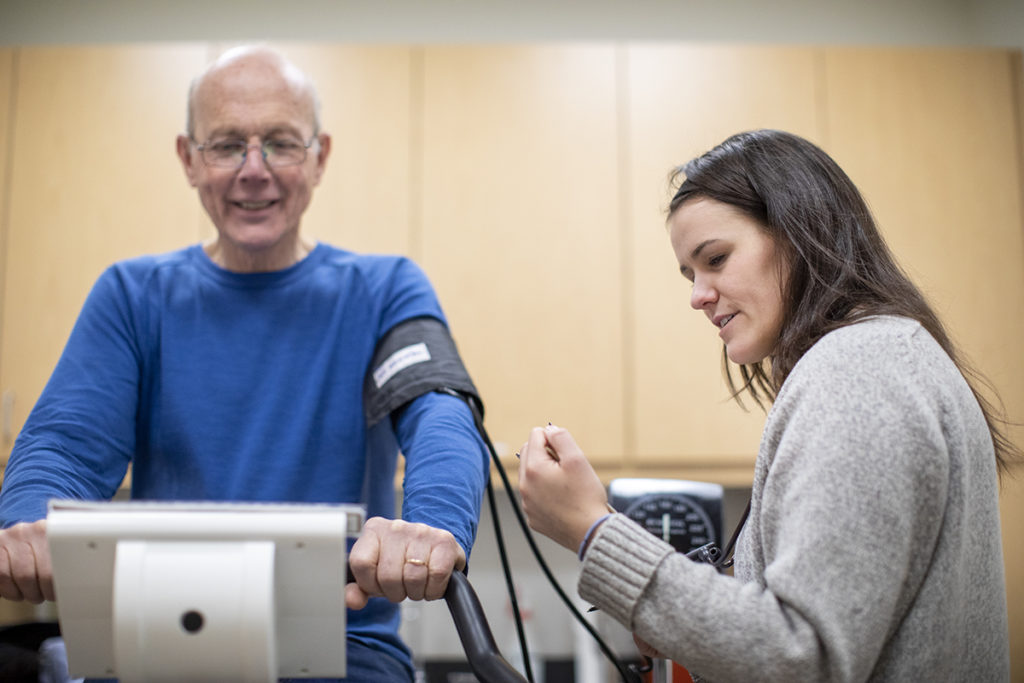
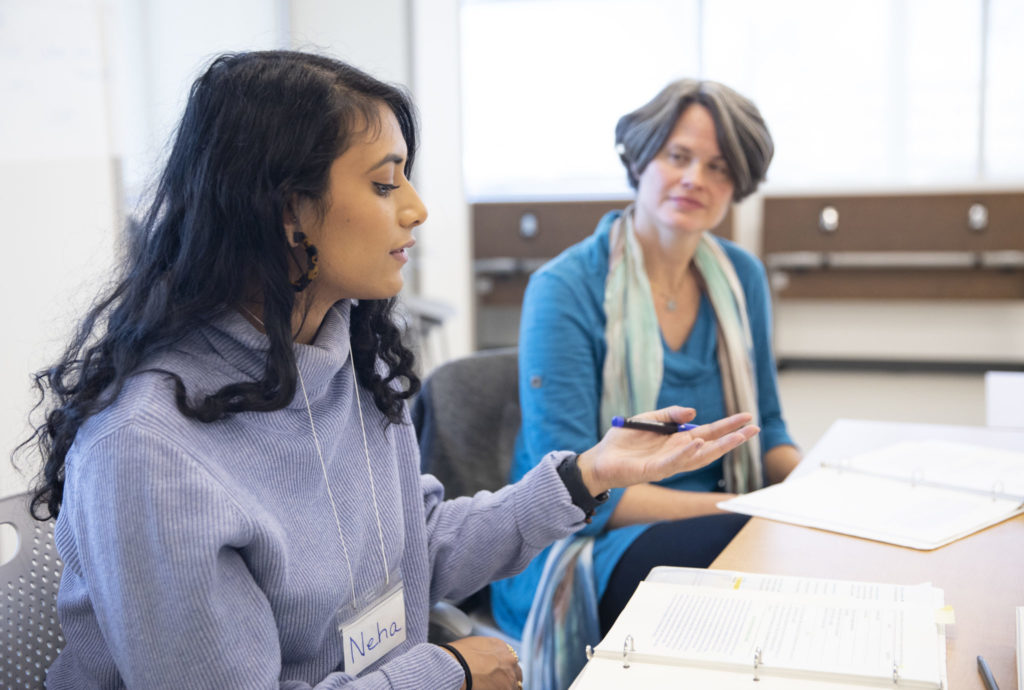
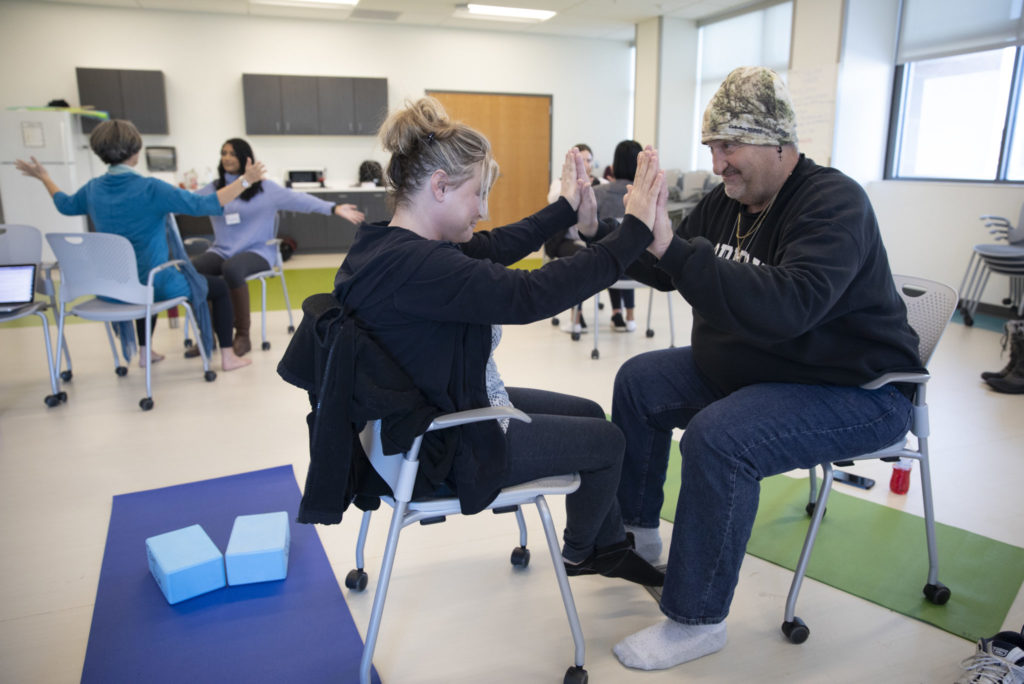
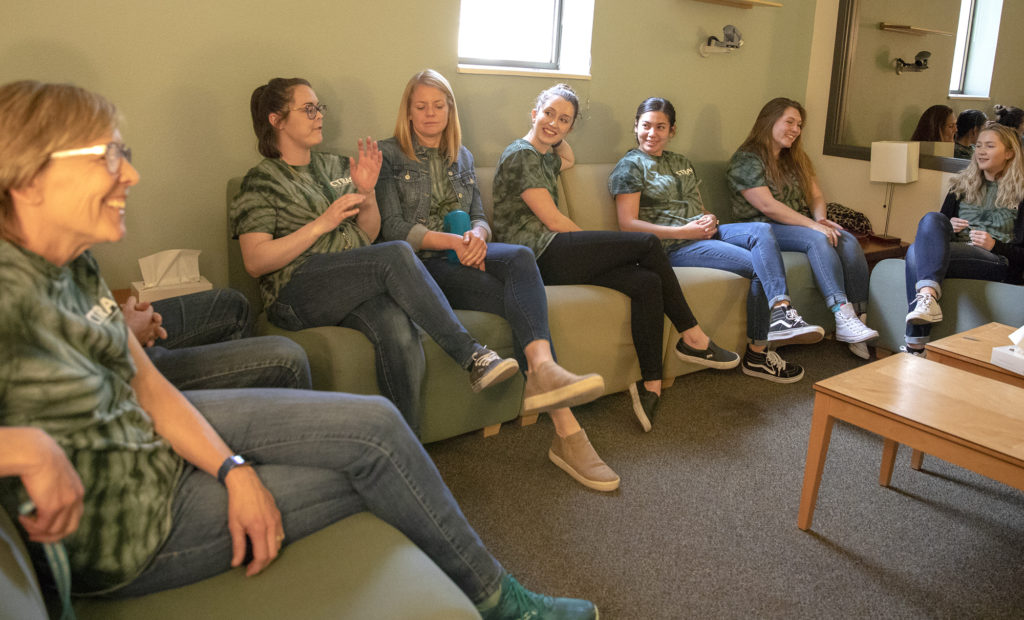
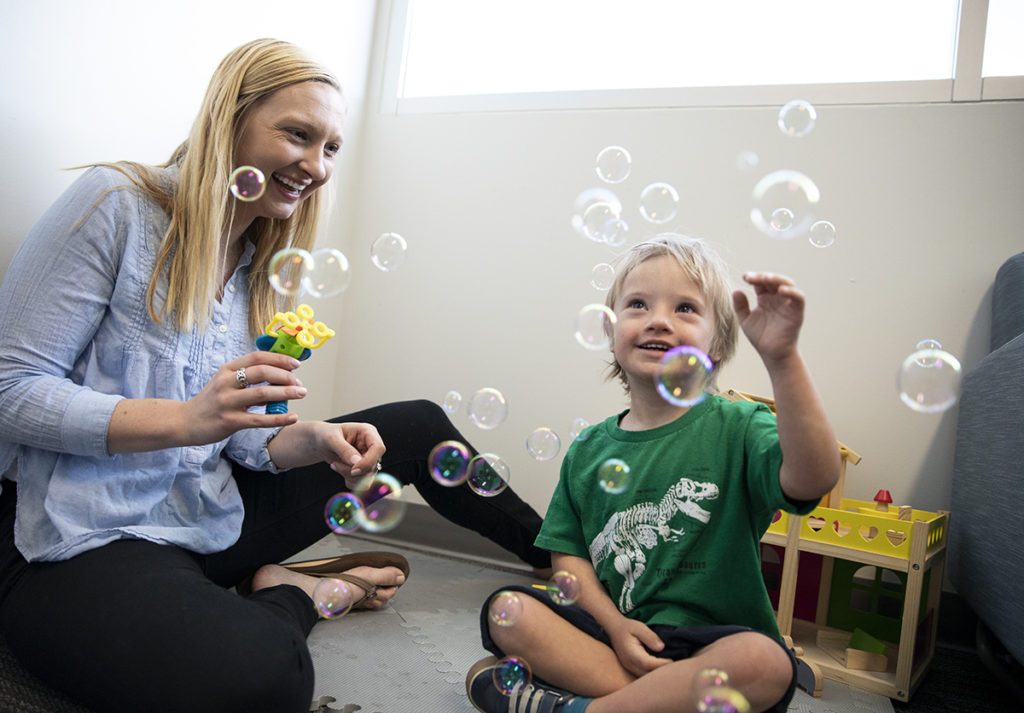
Future of the Department of Human Development and Family Studies
The Department of Human Development and Family Studies examines human development across the lifespan in the context of families, schools, communities, and culture.
Throughout the 21st Century, our Department will continue to train tomorrow’s leaders for careers that will enhance lives, from childhood to old age, in a wide array of educational, health-related, and human-service settings.
Graduate Programs
The HDFS Applied Developmental Science doctoral program will increasingly involve conducting research that prioritizes the reduction of health inequities and promotes social justice for minoritized and vulnerable populations, including those from non-majority racial and ethnic backgrounds, rural and aging populations, and those with developmental and intellectual disabilities.
Collectively, the HDFS Master’s programs in Prevention Science and Marriage and Family Therapy will train front-line prevention service providers and clinicians to support communities by delivering a continuum of integrated care for those in need of behavioral and mental health services.
Extension Programs
Faculty in the Department of Human Development and Family Studies has a long history of engaging with Extension agents to meet the individual, family, and community well-being needs of Coloradans.
Previously the Department operated from a specialist-only model to set state priorities and guide program initiatives.
While a specialist-only model provides depth in specific topic areas, the breadth of contemporary issues emerging across Colorado is beyond what a single specialist could be expected to have reasonable expertise in and seven years ago we re-envision our approach with Extension and utilized a flexible model of faculty and agent-driven project-based engagement.
Benefiting our role as a land-grant university, this unique approach has deepened and invigorated HDFS faculty connection with Extension, community and state partners, provides a rich training ground for our students, and increased external support for our HDFS-Extension projects from just under $200,000 in 2012 to over $1.2 million in 2019.
As we prepare for the future growth of HDFS-Extension programs and initiatives, we will look towards opportunities to connect our faculty and agents to create new programs and projects, to showcase how the successful HDFS-Extension initiatives care for and support the broad array of societal concerns impacting Coloradans.
Prevention Research Center
The Prevention Research Center is well-positioned to address several of the 21st Century’s greatest social, behavioral, and public health challenges. This is mainly due to the fact that an interdisciplinary, collaborative spirit is central to everything that happens at the Prevention Research Center.
The center’s team recognizes that the old days of conducting research in theoretical, philosophical, and methodological silos are over. It is only by crossing boundaries and leveraging the strengths of a diverse array of experts and community partners that society’s most significant challenges can be addressed.
The Prevention Research Center and its more than 20 faculty affiliates from departments including Human Development and Family Studies, Psychology, Social Work, Education, and Occupational Therapy all collaborate on research to promote health and address some of the country’s greatest behavioral health challenges including substance misuse, violence, and mental health.